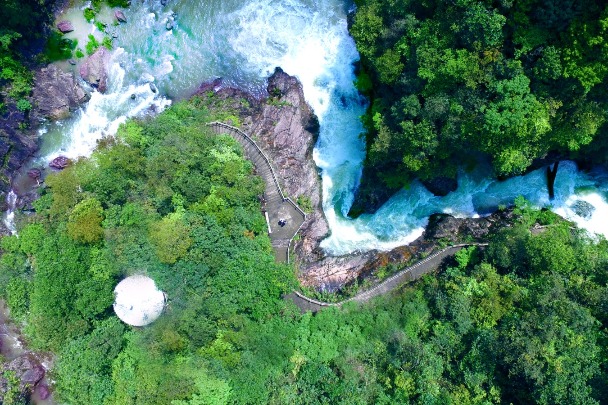
Sanbai Mountain Scenic Area, Ganzhou, Jiangxi province
Sanbai Mountain is a combination of peaks on the southeastern border of Anyuancounty, Jiangxi province. It is the source of the Dongjiang River, the headstream of drinking water for residents of Guangdong and Hong Kong.

Pingxiang Museum
Pingxiang Museum showcases the cultural and natural heritage, as well as the history, of Pingxiang, a city in western Jiangxi province and a crucial member of the city groups on the middle reaches of the Yangtze River.

Jingdezhen China Ceramics Museum
The Jingdezhen China Ceramics Museum was built to showcase this glorious history of Jingdezhen, a city referred to as having a two millennia history of pottery production,

Ganzhou Museum
The Ganzhou Museum holds some 20,000 historical artifacts and natural specimens, among which ceramics, paintings, calligraphy, and items of the Hakka folk customs are the most characteristic.

Lushan Mountain Museum
Lushan Mountain Museum is based in the former office and residence of Mao Zedong (1893-1976) at Lushan Mountain in East China's Jiangxi province. Located on the banks of the scenic Lulin Lake, the museum enjoys a pleasant natural environment.

Jiujiang Museum
The history of Jiujiang Museum can be traced back to 1978. Now, it has grown into the largest museum in Jiangxi province, and boasts a collection of over 10,000 items.

Bada Shanren Memorial
The Bada Shanren Memorial is one of the major public facilities that house the works of this monk artist.

Lushan Xihai Scenic Area, Jiangxi province
Covering a total planned area of 495 square kilometers, the Lushan Xihai Scenic Area can be divided into two parts: Xihai Lake Area and Yunju Mountain Area.

Wugong Mountain Scenic Area, Jiangxi province
Wugong Mountain Scenic Area is the northern segment of Luoxiao Mountain on the border of Hunan and Jiangxi provinces. It is a massive mountainous scenic area with the most abundant tourism sites in west Jiangxi.


